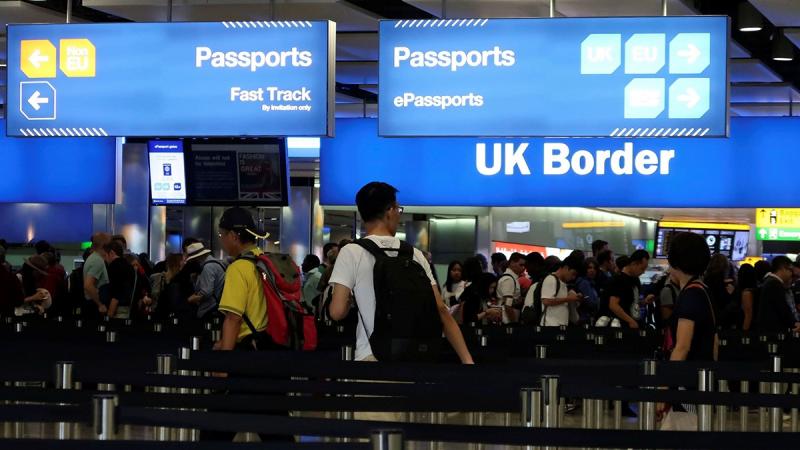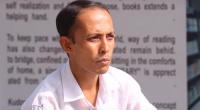 A new campaign launched at the UK Parliament is demanding that thousands of international students, including many Bangladeshis, accused of cheating by the UK government in an English language examination be allowed to re-take the exam to prove their innocence.
A new campaign launched at the UK Parliament is demanding that thousands of international students, including many Bangladeshis, accused of cheating by the UK government in an English language examination be allowed to re-take the exam to prove their innocence.
Migrant Voice, a UK-based charity campaigning for the rights of migrants, believes nearly 56,000 students have been caught up in the scandal, which emerged as part of a media sting operation that exposed cases of fraud in government-mandated English tests required for some student visas.
“The handling of the issue contradicts basic principles of British life, including the presumption of innocence until proven guilty and the imposition of collective punishment,” said Nazek Ramadan, the director of Migrant Voice, who launched the campaign within the House of Commons complex on Tuesday.
The issue dates back to 2014 when BBC aired an investigation into colleges offering the Test of English for International Communication (TOEIC) and revealed some cases of cheating. The UK Home Office responded by launching its own investigation and concluded that 33,725 of the test results were invalid and 22,694 questionable. Those with questionable results were given the chance to re-sit a test or attend an interview before action was taken against them but the others were made to abandon their courses and in many cases forced to return to their countries of origin.
Migrant Voice has released a new report entitled ‘I want my future back’ based on the experiences of people affected by the investigation, having arrived in the UK between 2004 and 2011.
“In 2014 and 2015 alone, the Home Office revoked visas of tens of thousands of international students and often detained and removed them,” the report notes.
“The knock-on effect has derailed careers and long-term aspirations. It has pushed people out of work and into poverty and debt,” it adds.
Among the case studies in the report, includes the experience of Ahmed, a 29-year-old Bangladeshi student who says his life was turned upside-down because of the “baseless allegation”.
He said: “I have lost my job, have no more money, and I’m borrowing to challenge the decision. I cannot accept this false allegation – it has a very negative effect on my social life and mental health.
“I'm completely depressed and even getting mental health support from specialists. I came here to study and learn. I want to leave the country with pride.”
Other nationalities affected include Indian, Pakistani, Nepali and Sri Lankan, with many of them also interviewed for the report.
The campaign has found the support of Labour MP Stephen Timms, who believes the evidence on which the Home Office took the decision to revoke visas was questionable.
“It has been suggested that up to 7,000 students have been wrongly accused. They have suffered grave injustice; many find themselves in an appalling situation,” he said, adding that he has raised the issue with UK Home Secretary Sajid Javid to reassess the situation.
The Home Office claims a number of steps were taken to ensure that the process for establishing the test results were “invalid” was robust.
“In February 2014, investigations into the abuse of English language testing revealed systemic cheating, which was indicative of large-scale organised fraud. The government took immediate robust action on this, which has been measured and proportionate, and so far more than 20 people have received criminal convictions for their role in this deception,” a Home Office spokesperson said.
The issue centres around the requirement by some UK visa applicants to pass a test of proficiency in written and spoken English. One of the approved tests is the "Test of English for International Communication" or TOEIC. It is provided by a US organisation called Educational Testing Service (ETS) at a large number of test centres across Britain. The spoken English part of the test involves the candidate being recorded reading a text, with the recording then being sent to an ETS assessor for marking.
After BBC exposed some cheating on these tests, the Home Office instructed ETS to use voice recognition software to check test recordings from the test centres in question. On the basis of ETS’ information, the Home Office took the decision to revoke many of the visas.
While the Home Office insists any “false matches” emanating from the voice recognition software was very small, campaigners have claimed that this figure is in fact very large.
“The Home Office failed to give any evidence of its allegations. Some students were accused of cheating at the TOEIC in a city or place they have never visited, or of taking the test on a date on which they did not take it. One student who has never ever taken the test was among those accused,” the Migrant Voice report found.
The group, which has branded this as the latest Windrush-style immigration scandal which revealed mistreatment of Caribbean-origin migrants, is now hoping to build momentum behind its campaign to get justice for students wrongly accused so that they can prove their innocence and resume their studies or work.
 Others
Others
31046 hour(s) 4 minute(s) ago ;
Morning 08:58 ; Thursday ; May 02, 2024
Campaign seeks justice for Bangladeshi students accused of cheating in UK
Send
Aditi Khanna, London
Published : 18:22, Jul 11, 2018 | Updated : 18:22, Jul 11, 2018
Published : 18:22, Jul 11, 2018 | Updated : 18:22, Jul 11, 2018
0 ...0 ...
/zmi/
Topics: Top Stories
- KOICA donates medical supplies to BSMMU
- 5 more flights to take back British nationals to London
- Covid19: Rajarbagh, Mohammadpur worst affected
- Momen joins UN solidarity song over COVID-19 combat
- Covid-19: OIC to hold special meeting
- WFP begins food distribution in Cox’s Bazar
- WFP begins food distribution in Cox’s Bazar
- 290 return home to Australia
- Third charter flight for US citizens to return home
- Dhaka proposes to postpone D8 Summit
Unauthorized use of news, image, information, etc published by Bangla Tribune is punishable by copyright law. Appropriate legal steps will be taken by the management against any person or body that infringes those laws.
Bangla Tribune is one of the most revered online newspapers in Bangladesh, due to its reputation of neutral coverage and incisive analysis.
F R Tower, 8/C Panthapath, Shukrabad, Dhaka-1207 | Phone: 58151324; 58151326, Fax: 58151329 | Mob: 01730794527, 01730794528


